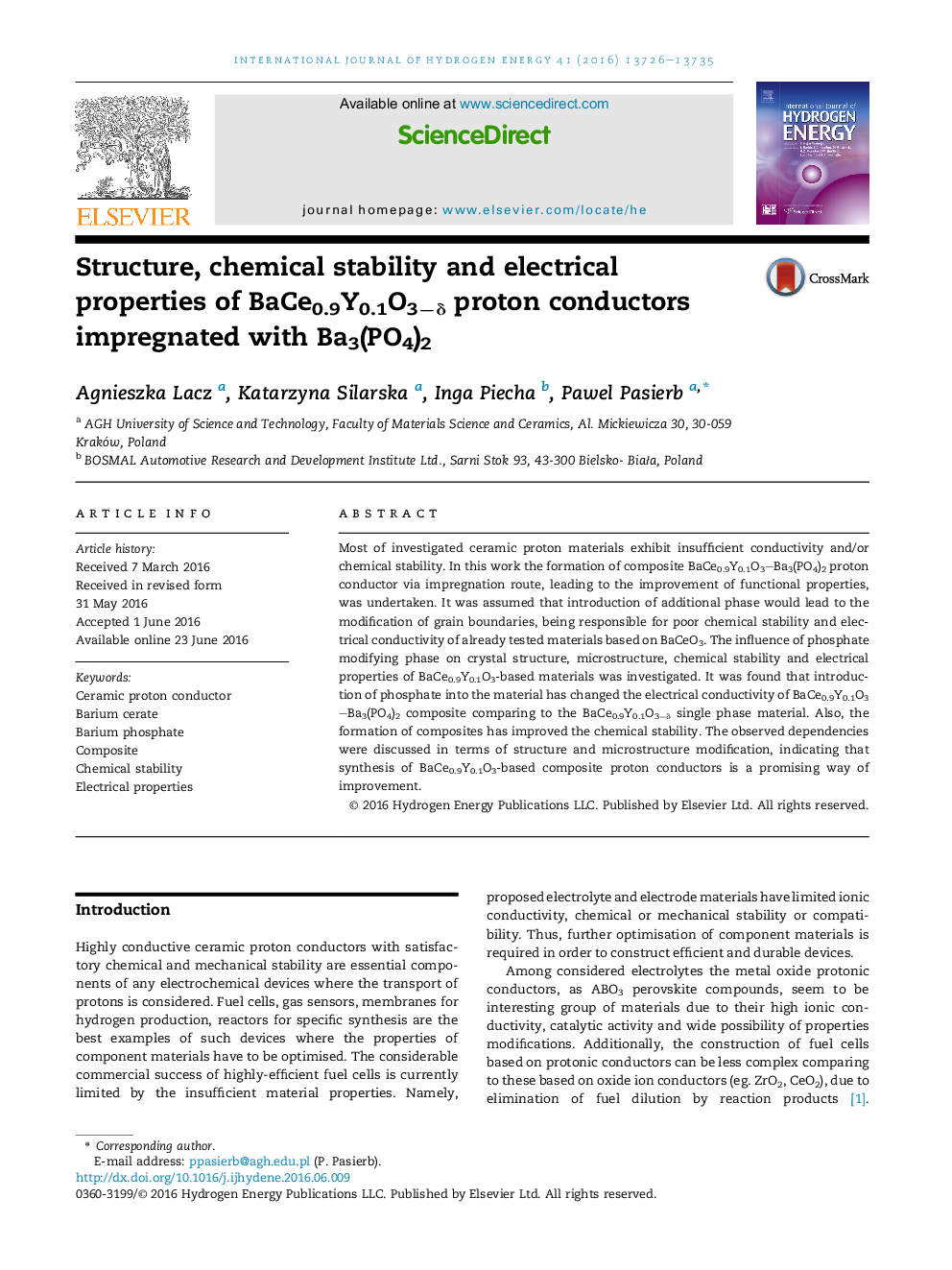| Article ID | Journal | Published Year | Pages | File Type |
|---|---|---|---|---|
| 1276487 | International Journal of Hydrogen Energy | 2016 | 10 Pages |
•Impregnation route was used to synthesize BaCe0.9Y0.1O3–Ba3(PO4)2 composites.•Chemical resistance of barium cerate was improved by introduction of phosphates.•Phosphate phase modified the electrical properties of BaCe0.9Y0.1O3.•EIS results analysis allowed to determine the role and impact of phosphate phase.
Most of investigated ceramic proton materials exhibit insufficient conductivity and/or chemical stability. In this work the formation of composite BaCe0.9Y0.1O3–Ba3(PO4)2 proton conductor via impregnation route, leading to the improvement of functional properties, was undertaken. It was assumed that introduction of additional phase would lead to the modification of grain boundaries, being responsible for poor chemical stability and electrical conductivity of already tested materials based on BaCeO3. The influence of phosphate modifying phase on crystal structure, microstructure, chemical stability and electrical properties of BaCe0.9Y0.1O3-based materials was investigated. It was found that introduction of phosphate into the material has changed the electrical conductivity of BaCe0.9Y0.1O3–Ba3(PO4)2 composite comparing to the BaCe0.9Y0.1O3−δ single phase material. Also, the formation of composites has improved the chemical stability. The observed dependencies were discussed in terms of structure and microstructure modification, indicating that synthesis of BaCe0.9Y0.1O3-based composite proton conductors is a promising way of improvement.
